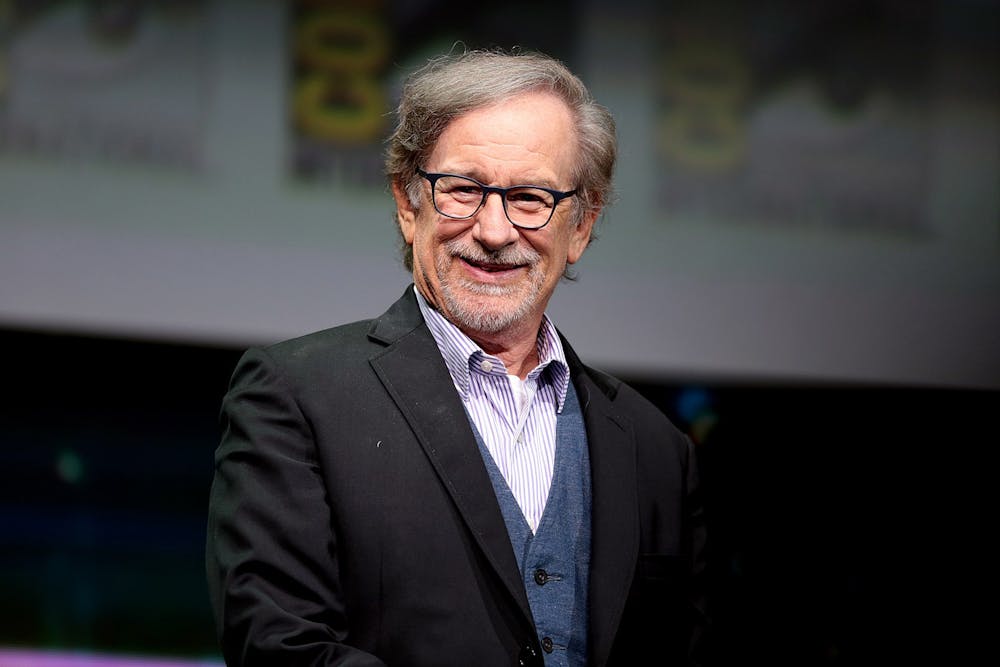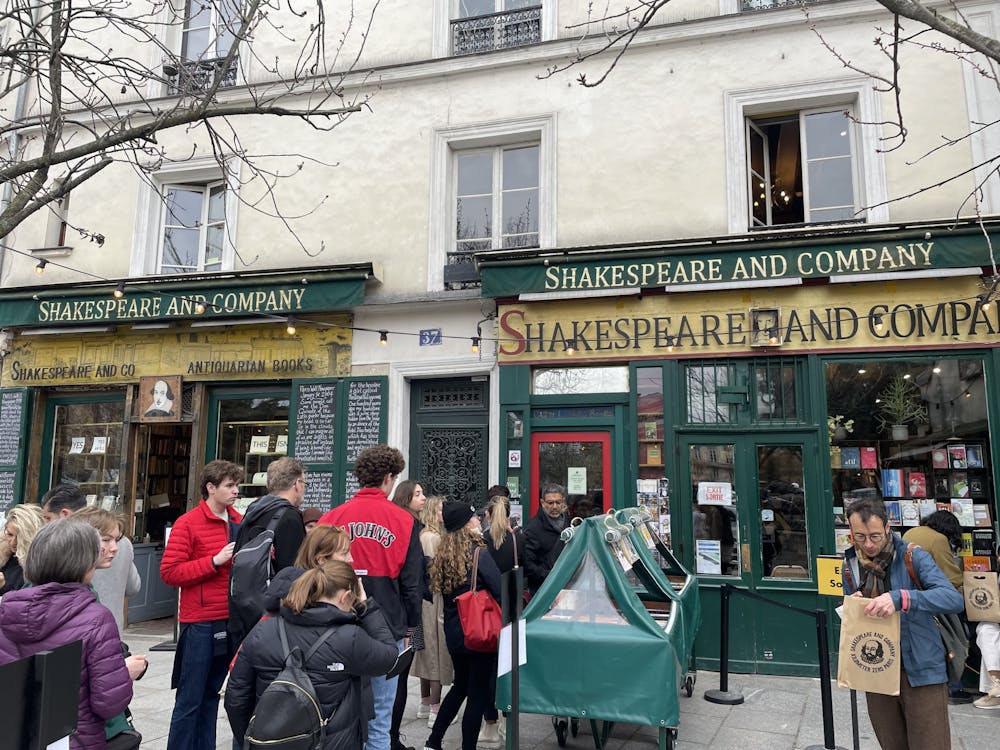In the opening scene of Steven Spielberg’s The Fabelmans, a young Sammy Fabelman watches his first film — The Greatest Show on Earth — in 1952. As he watches a train crash on the huge screen, his world is lopsided by the grandeur and magic of cinema. While watching The Fabelmans, I felt the same thrill as Sammy, albeit my emotions were due to the beauty of a simple and incredibly personal story that Spielberg brings to the film.
The Fabelmans is a semi-autobiographical film based on Spielberg’s childhood, his obsession with film and filmmaking and, most importantly, his family. Co-written with long-time collaborator Tony Kushner, the film tells the story of Sammy Fabelman and his family through his childhood and adolescence.
Childlike wonder has been a defining motif in Spielberg’s untarnished body of work, from E.T. the Extra-Terrestrial to Jurassic Park. Now, with The Fabelmans, he brings a visceral examination of the dinosaur that captured his wonder as a child: the motion picture. Incredibly, Spielberg recreates the thrill of a child making an 8-millimeter (mm) film of his toy trains crashing with the same warmth that made us fall in love with E.T. all those years ago.
Having entertained and inspired us with some of the most memorable moments in cinema history, Spielberg finally tells us his most personal story yet. He recounts his relationship with his mother through Mitzi Fabelman (Michelle Williams) and his father through Burt Fabelman (Paul Dano). Mitzi is a pianist, and Burt is a computer engineer, influencing the two sides of Sammy Fabelman (Gabriel LaBelle) — the artist and the creator.
As Sammy grows up, his obsession and love for film grow too. He regularly makes films with concepts and sets getting more elaborate for his low-budget amateur resources. He makes war films and Westerns, casting his friends and family and raising the money himself, and then screens them for the Boy Scouts to great applause.
One might expect a Steven Spielberg autobiography to begin and end with this story of a filmmaker being born, but this film is about something even deeper: family. The Fabelmans, like the Spielbergs, are a complex family. Mitzi Fabelman, especially, is a particularly peculiar character with her intense way to devour life’s experiences at odds with her love for and attachment to her family.
Sammy soon discovers a troubling secret about his mother, one that comes to define the dilemma of his childhood and makes him stop making films. The secret slowly breaks the family apart, even as they move from Arizona to California until Sammy’s parents end up separating. However, facing intense bullying and anti-Semitism in his school in California, Sammy finds himself returning to filmmaking to escape his crumbling world.
As someone who very recently began making films, I was delighted by each frame of The Fabelmans. Most notably, early in the film, the young Sammy (Mateo Zoryon Francis-DeFord) projects his 8mm film of his toy trains crashing onto his palms, a shot that perfectly sums up the wonder of movies. For Spielberg, those tiny palms eventually became the biggest screens around the world. As a massive fan of his work, the joy I felt of watching the enormity of his films boil down to a kid watching his toy trains crash in his closet brought me to tears.
I did, in fact, cry voraciously through the last twenty minutes of the film. The chords of filmmaking and family that the film struck hit very close to home. Even without that, the film at its core is a moving coming-of-age tale of a young boy who finds his place and purpose in the world. Spielberg and Kushner’s ability to bring out the universality of Spielberg’s personal experience makes The Fabelmans as touching as it is.
The cast creates the family of the Fabelmans with exquisite nuance and complexity. Williams as Mitzi Fabelman is a delight as she embodies the extreme inner turmoil and dilemma of her character. Despite her many flaws, her motherly warmth pervades our hearts, and we see her as a fallible person, something parents seldom have the luxury to be seen as.
Dano as Burt Fabelman was perhaps my favorite performance in the movie. He embodies the soft-spoken genius computer engineer with superhuman patience as his wife seems to spiral out of control. Dano’s subtlety throughout pays off immensely when Burt finally loses his temper at certain moments in the film. One can’t help but respect Burt Fabelman despite feeling sorry for him, all thanks to Dano’s incredible performance.
LaBelle as Sammy Fabelman is also a true revelation. He holds his own against accomplished actors like Dano and Williams under the direction of a giant like Spielberg while playing a character based on him. He rises to this daunting challenge by creating a character that is not overshadowed by its circumstances and delivers on all fronts, from Sammy’s adolescent fun side to his tormented soul.
The ending to The Fabelmans is a work of art. David Lynch’s cameo as legendary director John Ford was a pleasant and unexpected surprise. As Sammy meets his idol, Ford gives him the single most profound advice about framing shots in filmmaking before telling him to get out of his office.
“If the horizon is in the bottom, it’s interesting. If the horizon is in the top, it’s interesting. If the horizon is in the middle, it’s boring as shit,” he says.
Then, in a perfect ending to the film, as Sammy walks out into the studio backlot, the camera has him in the middle of the frame until it adjusts to follow Ford’s instructions.
Spielberg and his films have meant so much to me, and this is the film I had been waiting for him to make. Watching it in the theatre and crying amid strangers was an experience I will never forget, and I can’t recommend it to you enough. It is a rare opportunity to be let into the mind and heart of one of the greatest filmmakers of all time, and I encourage you to take it.





